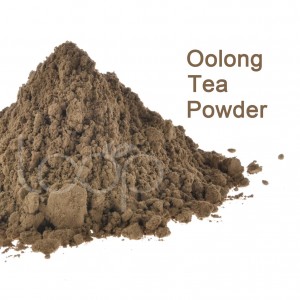 Oolong tea, which belongs to semi-fermented tea, has more varieties and is a unique tea category with distinctive characteristics in China. Oolong tea is a tea of excellent quality made through the processes of picking, withering, shaking, frying, kneading and roasting. Oolong tea evolved from the Song Dynasty tribute tea dragon ball and phoenix cake, and was created around 1725 (during the Yongzheng period of Qing Dynasty). After tasting, it leaves a fragrant taste on the cheeks and a sweet aftertaste. Oolong tea's pharmacological effects are highlighted in the decomposition of fat, weight loss and beauty. In Japan is called "beauty tea", "bodybuilding tea". Oolong tea is a unique Chinese tea, mainly produced in northern Fujian, southern Fujian and Guangdong, Taiwan three provinces. Sichuan, Hunan and other provinces also have a small amount of production. Oolong tea is mainly exported to Japan, Southeast Asia, Hong Kong and Macao in addition to domestic sales in Guangdong and Fujian provinces, and its main production areas are Anxi County, Fujian Province.The predecessor of oolong tea - Beiyuan tea, Oolong tea originated in Fujian, which has a history of more than 1000 years. The formation and development of oolong tea, the first to trace the origin of Beiyuan tea. Beiyuan tea is the earliest tribute tea in Fujian, is also the most famous tea after the Song Dynasty, the history of the Beiyuan tea production system and cooking and drinking writings have more than ten kinds. Beiyuan is the area around the Phoenix Mountains in Jianou, Fujian, in the late Tang Dynasty has produced tea. Oolong tea contains more than four hundred and fifty organic chemical components, inorganic mineral elements of more than forty kinds. The organic chemical composition and inorganic mineral elements in tea contain many nutrients and medicinal ingredients. The organic chemical components mainly include: tea polyphenols, phytochemicals, proteins, amino acids, vitamins, pectins, organic acids, lipopolysaccharides, sugars, enzymes, pigments, etc.
Oolong tea, which belongs to semi-fermented tea, has more varieties and is a unique tea category with distinctive characteristics in China. Oolong tea is a tea of excellent quality made through the processes of picking, withering, shaking, frying, kneading and roasting. Oolong tea evolved from the Song Dynasty tribute tea dragon ball and phoenix cake, and was created around 1725 (during the Yongzheng period of Qing Dynasty). After tasting, it leaves a fragrant taste on the cheeks and a sweet aftertaste. Oolong tea's pharmacological effects are highlighted in the decomposition of fat, weight loss and beauty. In Japan is called "beauty tea", "bodybuilding tea". Oolong tea is a unique Chinese tea, mainly produced in northern Fujian, southern Fujian and Guangdong, Taiwan three provinces. Sichuan, Hunan and other provinces also have a small amount of production. Oolong tea is mainly exported to Japan, Southeast Asia, Hong Kong and Macao in addition to domestic sales in Guangdong and Fujian provinces, and its main production areas are Anxi County, Fujian Province.The predecessor of oolong tea - Beiyuan tea, Oolong tea originated in Fujian, which has a history of more than 1000 years. The formation and development of oolong tea, the first to trace the origin of Beiyuan tea. Beiyuan tea is the earliest tribute tea in Fujian, is also the most famous tea after the Song Dynasty, the history of the Beiyuan tea production system and cooking and drinking writings have more than ten kinds. Beiyuan is the area around the Phoenix Mountains in Jianou, Fujian, in the late Tang Dynasty has produced tea. Oolong tea contains more than four hundred and fifty organic chemical components, inorganic mineral elements of more than forty kinds. The organic chemical composition and inorganic mineral elements in tea contain many nutrients and medicinal ingredients. The organic chemical components mainly include: tea polyphenols, phytochemicals, proteins, amino acids, vitamins, pectins, organic acids, lipopolysaccharides, sugars, enzymes, pigments, etc. Type:
Oolong Tea
Shape:
Powder
Standard:
NON-BIO
Weight:
5G
Water volume:
350ML
Temperature:
85 °C
Time:
3 MINUTES